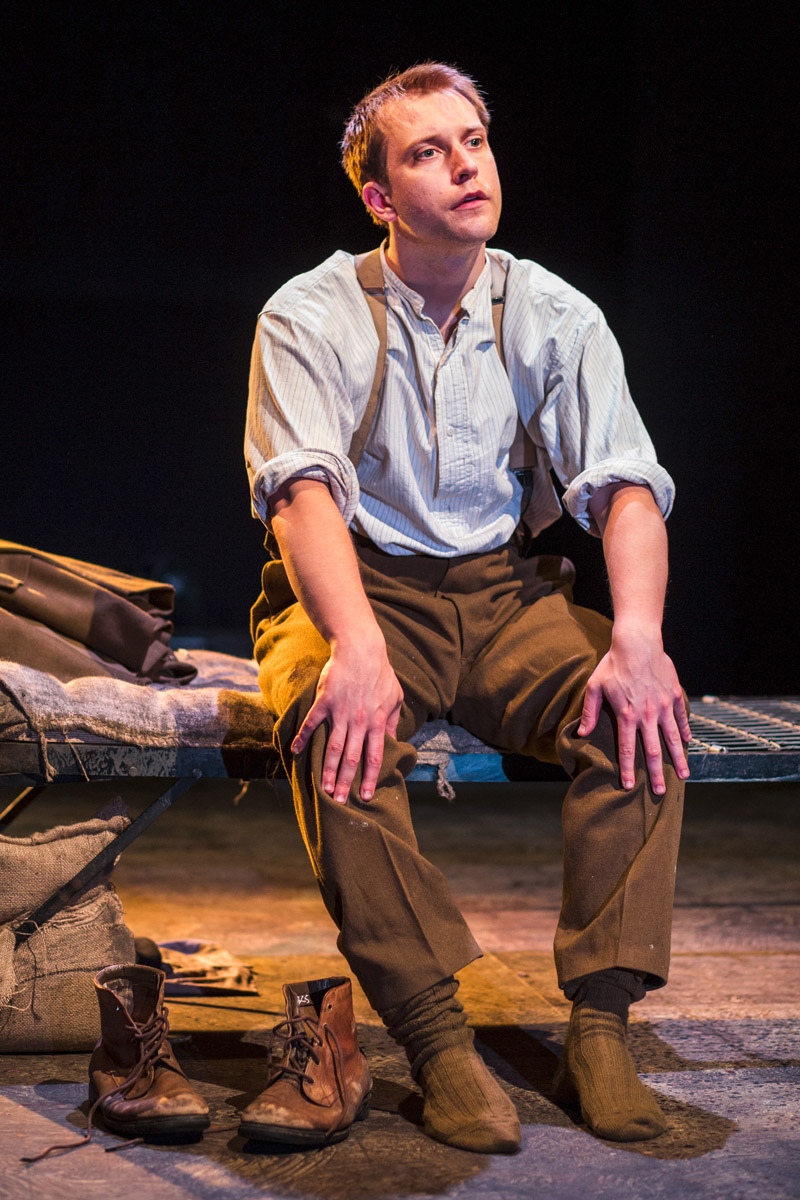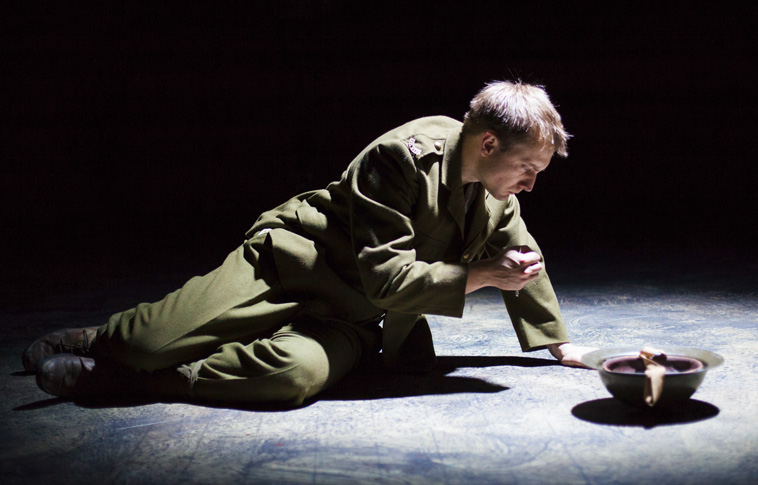A few years ago I had the privilege of meeting and photographing Harry Patch, ‘The Last Tommy’. Knowing, or in my clumsy way, thinking I knew what he must have gone through in the trenches, I felt awkward in trying to coax out of this old man (104 then) nuggets of first hand information about this epoch making (and indeed ending) event. Although he was adamant that he would never return to Flanders his memory was vivid, particularly of the awful noise that accompanied the terror of the bombardments. Like Private Peaceful he was injured by a shell-burst, which killed some of his comrades and like Private Peaceful he wondered at the sanity of going to a foreign land to try and kill people he did not know and whose language he did not understand. Notwithstanding, he was, again like Private Peaceful, proud of his service and had turned up with all his medals, his badges of honour, pinned to his civilian jacket.
He was later to remark, having been finally persuaded to go back by a journalist (I think for the BBC), as he surveyed the graves of the fallen of Passchendaele, that it could easily have been him. As the last survivor – as he later became – he could make no sense of the fact that he was alive when so many others had perished and as the last survivor he was a kind of living, concentrated history.
And so with Michael Morpurgo’s story. Harry Patch could easily have been in a condemned cell for an act no more cowardly than wanting to stay with a wounded comrade and a refusal to commit an act of insanity. When lives are wasted with such profligacy, what matter if a few more are used as ‘an example’? Tommy Peaceful is also a kind of concentrated history: a distillation of what was lost, of that rural land evoked in Edward Thomas’s, Adlestrop , a land filled with lives of richness.
Simon Reade’s exquisite adaption and direction brings out the full human value of a life so carelessly squandered for ‘an example’. He makes a virtue of the meagre resources available to a one-man play on a virtually bare stage, save the condemned soldier’s bed. The lack of a set means you can have any set, go where you will; in a school, in a wood, a trench, a cell, by a stream. The distillation of a life and death into an empty stage – Peter Brook would be proud. Howard Hudson’s lighting does everything a director could want, it is ‘spot on’. The sound-scape too, acts like a slideshow suddenly illuminating an idea with a vivid picture such as a school playground or bi-plane.
The selection of scenes is perfect in rounding out a life lived physically and internally. He has led his actor with great care and in the actor the story has a perfect servant. William Troughton turns in a masterful performance as Tommy Peaceful and all the other characters that tumble onto the stage. Without missing a beat he is there, in the moment, for each of the scenes he vividly brings to life and with a sweep of emotions which puts the common man on a Homeric canvas. His mime is perfect, his physicality chameleon and his characterizations engaging and clear. It is a feat of energy, concentration and imagination.
Everything about this production is so achingly perfect. It is bravura storytelling and consummate acting with depth, sensitivity, emotion and a highly developed sense of moral outrage. ★★★★★ Graham Wyles



